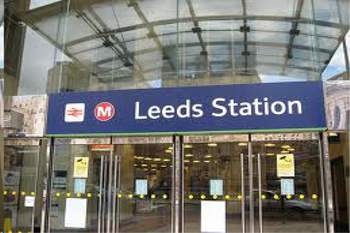West Yorkshire is in line for a devolution deal under a directly elected mayor model, which will see the region secure new transport powers and an integrated budget.
The deal is worth £38m per year for 30 years or £1.1bn in total, the Government said, and has been laid before Parliament.
It is now awaiting approval by the local councils Bradford, Calderdale, Kirklees, Leeds, and Wakefield Councils, as well as the combined authority and Parliament itself.

Leeds station in line for a revamp
Subject to that approval, the region’s first ever mayoral elections will go ahead on 6 May 2021.
Under the plans, the combined authority will have a five-year, integrated transport settlement starting in 2022/23, and the Government has pledged to 'explore' the case for West Yorkshire Mass Transit.
Local leaders have long held plans for a mass transit scheme for Leeds, though it has never quite made it to delivery stage.
As a mayoral combined authority, the mayor will have access to bus franchising powers under the Bus Services Act 2017 and the Government said it 'will consider' transferring control of the Bus Service Operator Grant, subject to business case approval.
The West Yorkshire Combined Authority (WYCA) has requested control of moving traffic offence powers, which look set to be devolved under ministerial plans to implement Part 6 of the Traffic Management Act 2004 for authorities outside London next year.
Included in the package is £317m from the Transforming Cities Fund, 'with flexibilities on spend' and £101m for flood risk management, 'with an ongoing partnership with the Environment Agency on identifying and addressing flood risk management requirements in West Yorkshire'.
Up to £500,000 for the Bradford Station Masterplan and funding for the next stage of development of the Outline Business Case for Leeds station redevelopment, is also included in the package.
The combined authority will retain its current transport functions, although the mayor will take responsibility for preparing the transport plan and strategies, which can only be amended by the WYCA if a majority of members agree.
Additional WYCA powers include the ability to set up and co-ordinate a Key Route Network (KRN) on behalf of the mayor - although all operational responsibility for roads will remain with the constituent councils unless agreed otherwise locally.
This joint working could see the combined authority and mayor develop a 'single strategic asset management plan' and even work towards a 'streamlined contractual and delivery arrangements across the city region'.
The WYCA will also have powers to collect contributions from utility companies for diversionary works as a result of works carried out on the KRN and the ability to operate a permit scheme on the network, as well as apply for lane rental powers.
It will also be able to seek consent to raise a Strategic Infrastructure Tariff and the mayor will be able to set a precept on council tax to fund 'mayoral functions'.
The directly elected mayor will also gain planning powers to produce a spatial development strategy, designate a Mayoral Development Area and then set up a Mayoral Development Corporation, as well as housing and land acquisition powers.
On rail, the Government recognised 'the region’s ambitions for further devolved powers', which would be considered by the ongoing Williams Review of Rail.
Register now for full access
Register just once to get unrestricted, real-time coverage of the issues and challenges facing UK transport and highways engineers.
Full website content includes the latest news, exclusive commentary from leading industry figures and detailed topical analysis of the highways, transportation, environment and place-shaping sectors.
Use the link below to register your details for full, free access.
Already a registered? Login